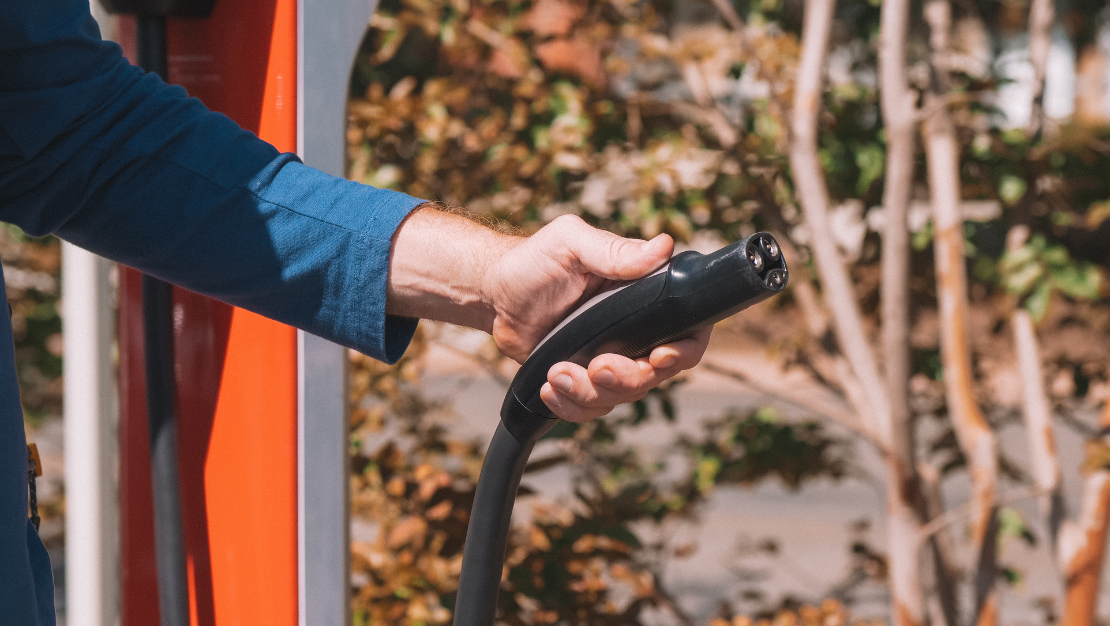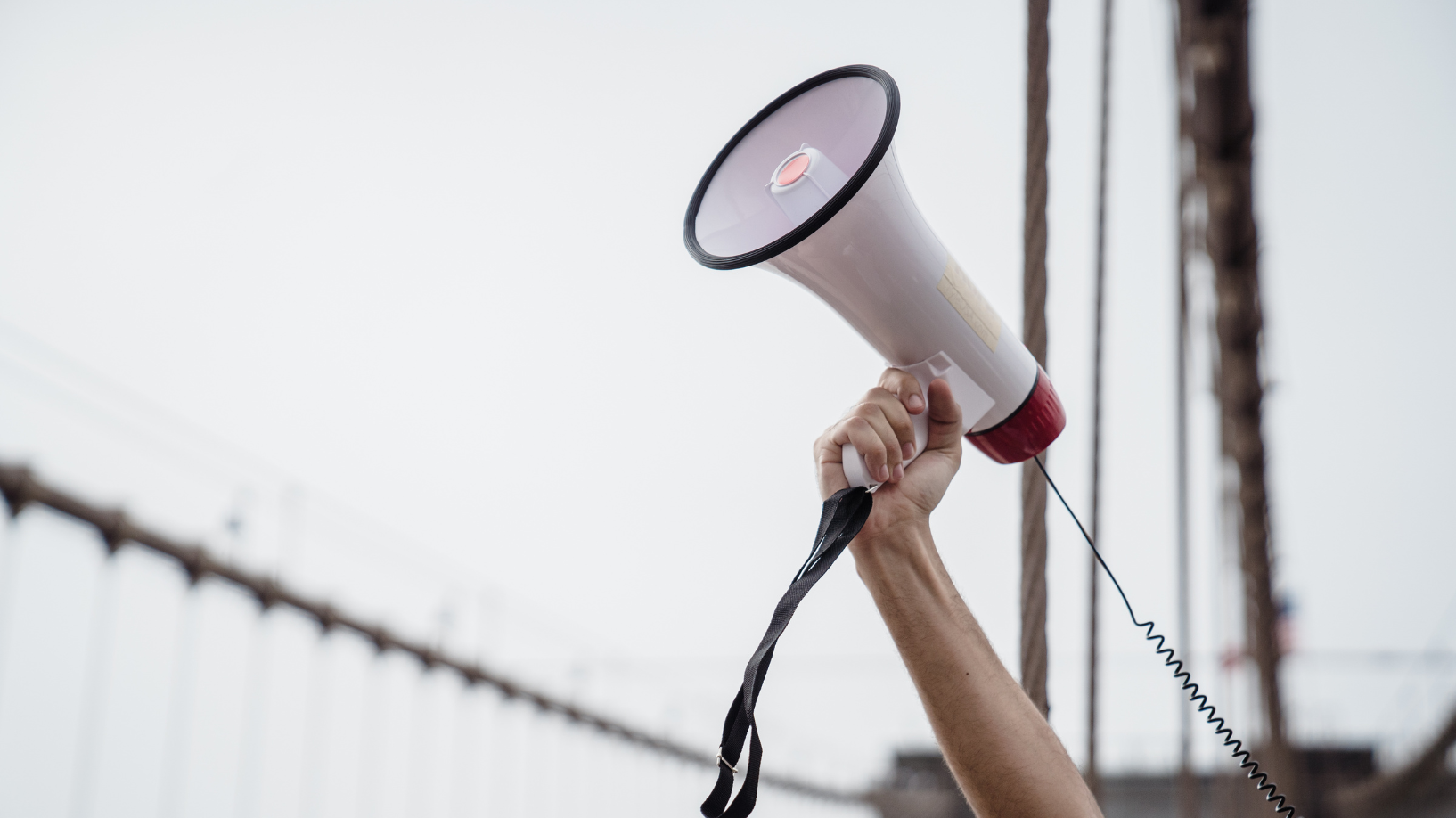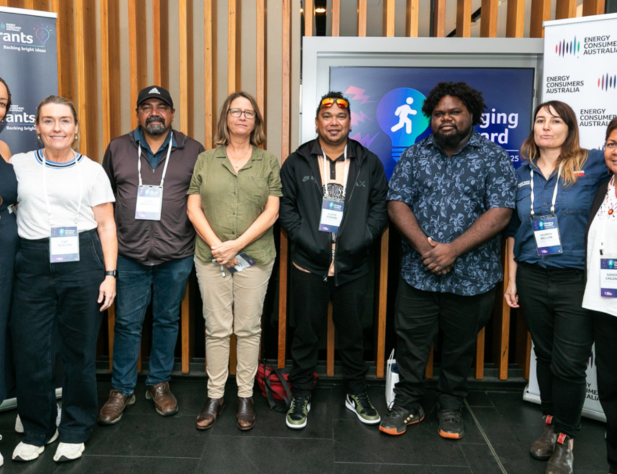We're proud to announce funding through our Grants Program for eight new grants!
These projects address some of the most persistent barriers in the energy transition, as well as accelerating some of the underlying enablers which can help drive change.
From cutting red tape for people experiencing energy hardship, to reimagining public EV charging, to enabling shared ownership of large-scale renewables and accelerating community electrification in new ways – these projects tackle some of the big questions of access, agency and fairness.
Each grant reflects our commitment to funding work that shapes the national conversation, influences regulatory and policy settings, and most importantly, drives better outcomes for Australian households and small businesses.
About the eight new grant projects
1. Understanding information needs for consumer electrification decisions
Recipient: University of New South Wales
Funding Awarded: $147,791
As households and small businesses look to electrify their homes, vehicles and appliances, one common barrier keeps surfacing: a lack of clear, trusted, and personalised information.
This project, by the University of NSW, will expand existing decision-making tools and improve the information available to help consumers electrify their homes and businesses. This includes developing a new electrification module for the Australian PV Institute’s open-source SunSPOT tool and offering tailored guidance for consumers based on their specific circumstances.
By making trusted, non-commercial advice more accessible, this project will support consumers to make more informed decisions, and take meaningful steps, targeted to their situation, to get off gas.
2. Leveraging the ACT to Ensure an Equitable Energy Transition: Research, Advocacy, and Influence
Recipient: ACT Council of Social Service (ACTCOSS)
Funding Awarded: $297,160
The ACT is at the forefront of the energy transition, positioning it as a ‘test lab’ which other jurisdictions can learn from. ACTCOSS will build on its existing work to amplify lessons from the ACT’s transition so they can be applied elsewhere.
In partnership with CARE, this grant will deliver three targeted projects:
- Ensuring equitable Consumer Energy Resources (CER) policy settings
- Delivering a fair transition away from gas
- Tackling the paucity of energy upgrades for renters
Consistent across these three projects is a commitment to ensure that vulnerable consumers are not left behind in the transition.
For example, as part of project three, ACTCOSS will undertake research to understand what initiatives and incentives would most effectively encourage landlords and property managers to upgrade the energy efficiency of rental home. This long-standing challenge has been a consistent barrier to delivering better outcomes for renters, and addressing it will enable more effective, evidence-based advocacy across Australia.
3. Electrification Accelerator: A community-led approach to making electrification faster, fairer and better
Recipient: Rewiring Australia
Funding Awarded: $275,000
Electrification should be for everyone, but many Australians face barriers as a result of their housing type, income, tenancy status or location. Without targeted interventions, the divide between energy "haves and have-nots" will grow.
Building on existing work, Rewiring Australia will co-design and pilot scalable, community-led electrification projects across Australia. These pilots will identify what works and what doesn’t when it comes to accelerating electrification, in a way that’s fair, affordable and inclusive.

Based on the learnings from these initiatives, Rewiring Australia will develop practical tools and resources to support other communities wanting to undertake electrification projects and navigate complex energy decisions, enabling these findings to be multiplied and applied at scale.
4. Enabling community shared ownership (CSO) of large-scale renewable energy assets to advance social equity outcomes for disadvantaged energy consumers
Recipient: Community Power Agency
Funding Awarded: $137,764
Community shared ownership (CSO) of large-scale renewable energy projects is gaining momentum overseas, but remains rare in Australia.
This project, from Community Power Agency, will investigate CSO models that could work in the Australian context, with a strong focus on equity and inclusion. It will develop a framework to ensure shared ownership models benefit, not exclude, vulnerable and marginalised communities, including First Nations households.
By broadening who can share in the benefits of the energy transition, this project has the potential to inform future community energy policy, improve social licence for large-scale renewables, and support more inclusive forms of ownership. This will be vital to the success of the transition, as more and more large-scale renewables come online.
5. The consumer burden of seeking relief from energy hardship: investigating the hidden costs of administrative processes
Recipient: The University of Sydney
Funding Awarded: $59,265
For households experiencing financial stress, navigating energy hardship support can be complex, time-consuming and overwhelming. Too often, people give up before getting the help they’re entitled to.
This project will map the administrative burdens faced by consumers applying for hardship relief at each stage. It will shed light on how complex systems can unintentionally cause harm, and provide recommendations on how to simplify the process.
The University of Sydney will work closely with the Justice and Equity Centre to ensure the findings are used to influence regulatory reform and make it easier for people to get support when they need it most.
6. Abundance, equity and affordability – optimising urban opportunities for renewable energy generation and storage
Recipient: Committee for Sydney
Funding Awarded: $171,407
“Renewable Energy Zones” (REZs) are being created by state governments to deliver the scale of energy generation needed to enable the transition. While these have been focused on rural and regional areas, the Committee for Sydney wants to explore if there is a complementary ‘micro pathway’ for Sydney, and urban Australia.
Today, rooftop solar in Greater Sydney generates approximately 10% of total electricity demand. This could grow up to 30% if the millions of empty rooftops – especially industrial and residential ones – are strategically harnessed.
This project will explore innovative, alternate ways to optimise the generation and storage of renewable energy, accelerate access to affordable energy for consumers, and reduce the metropolitan load on the National Electricity Market.
In turn, this research will be used to develop policies and recommendations for decision-makers about how to best deliver urban renewable energy pathways.
7. Public electric vehicle charging to benefit all energy consumers
Recipient: University of New South Wales
Funding Awarded: $146,217
Electric vehicle (EV) adoption shouldn’t be limited to people with a driveway and a private charger. However, current dwelling and economic arrangements mean that many people are unable to own an EV.
This project, from the University of NSW, tackles a key equity issue: how to ensure public charging infrastructure meets the needs of all consumers, especially renters, apartment dwellers, and those without off-street parking.

Using real-world data from three Sydney councils, the research will:
- Evaluate different public charging models and their impact on the electricity grid and consumer outcomes
- Answer three key questions to enable the ongoing expansion of public charging: where public chargers should be located, how they should operate, and how they can be financed
- Inform government policies and funding programs, helping ensure the public EV charging rollout is equitable, efficient, and consumer-focused.
With decisions about EV infrastructure being made now, the timing and potential impact of this work is significant.
8. Analysis and Advocacy for Accelerating Home Energy Upgrades
Recipient: Australian Council of Social Service (ACOSS)
Funding Awarded: $350,000
Australian homes have some of the lowest energy efficiency ratings in the Organisation for Economic Co-operation and Development (OECD). Of the 10.9 million existing homes, the average rating is just 1.7 stars, far below the 7 stars required for new builds.
This poor performance drives up energy bills; contributes to poor health outcomes; and exacerbates energy stress, debt and disconnections. There is a real need for large-scale data on the health consequences of energy-inefficient housing, particularly in warmer climates.
To address this, the Australian Council of Social Service (ACOSS) will research the health impacts of poor energy performing homes, in comparison to well-performing energy homes. The project will produce new health data on the benefits of home energy upgrades for consumers, and investigate the impact on government budgets.
This information will be used to call for stronger government policies and investment to accelerate and scale up home energy upgrades for consumers. There will be a particular focus on prioritising initiatives for low-income housing, to help reduce energy poverty and inequality.
Driving change through practical research
These eight new grants reflect our commitment to support projects that are grounded in evidence, shaped by consumer needs, and capable of delivering real-world impact. Together, they focus on making the energy system fairer and more accessible.
We’re excited to support this work and contribute to improved energy outcomes for households and small businesses across Australia.
More information
- Find out more about our Grants Program
- Review our updated Grant Program Guidelines (PDF, 467.21KB) (Influence and Collaboration Grants)
- Questions? Contact our grants team



